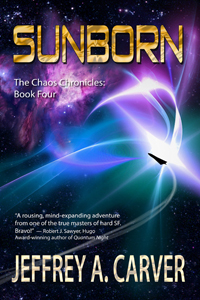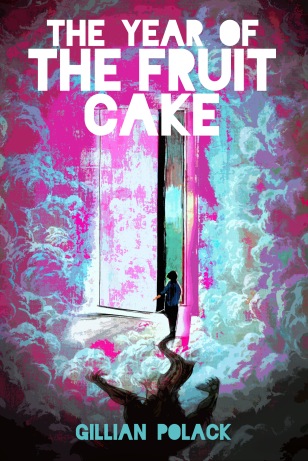I was trying to explain to a friend today, that my life is so rollercoaster that I couldn’t catch him up on the last three weeks. I’d just caught him up on maybe a third of it, with much hand gesturing and discussion. He didn’t think my life was playing rollercoaster games with me. It’s normal, he said.
If it’s normal, I worry about the world. One day recently, eight nasty little things happened to me before breakfast and spellcheck offered me ‘tetchy’ instead of an entirely different word. I wanted to accept ‘tetchy’ then. That same day, I received one of those phone calls that ends with, “Don’t tell anyone. This is under embargo.” The embargo is over and I can tell you: I’ve been given a government grant to write. And I’d just told the world I was tetchy. I had eight reasons for being tetchy and now I have one reason for having a sigh of relief. Income is a magic thing.
The next bit of rollercoaster was entirely exhaustion with being inside. The place I live in may be short on COVID, but I am vulnerable and my various doctors tell me I will be in iso for a long time to come. Sometimes I become rebellious. This time I found an historical drama (the ‘an’ is to remind you of my accent) that is 50 one hour episodes long and that depicts a part of the Middle Ages I’m little-acquainted with. Six Flying Dragons and the Korean fourteenth century. I can still pick some holes in it and there is so much to learn about how Korea likes to tell its own stories and so it’s relaxing.
K-drama was performing its magic and I was thinking, “I, too, can have an even keel of a life.” Unless my friend is wrong and other people have placid days from time to time. For it seems I can’t. The minute I thought I could I had to give up seven phials of blood to medical diagnosis. I went into a shop on the way home. The shop with no-one else except one salesperson, and we stayed clear of each other, so I can tell my doctor next week “I didn’t betray you, truly – I wore a mask and didn’t come within 2 metres of anyone.
My unexpected trip outside the flat taught me that Australia is getting very few shipments from SE Asia. I have lots of ginger tea and not a scrap of the spices I went in for.
I also have moon cakes. Normally the moon cakes come from Hong Kong or from Singapore. These might have been from Hong Kong, but they are labelled ‘China’ and are standard white lotus ones with much eggyolk. These will be my special treat for the next month, then the tin ends up storing food in my pantry. Moon cake tins stack and they have good seals, and each year I get just one. I was thinking that flour would be good to store in this one, but it’s too pretty.
I couldn’t get my Javanese coffee. Kopi Jawa is a particular roast and a particular brand from Indonesia. I was taught to make it in a way that works like instant coffee but with a much better flavour, and it’s great for when I’m lazy, or tired or sick or all three. There was a void on the shelf where it belonged.
It’s odd to find what’s around and what isn’t. It’s stranger walking through a shop with shelves that look as if they belong to the seventies than it is to shop online.
I ought to explain the seventies thing. Australia in the seventies had strikes. We imported a lot of things – we still do – and the strikes meant unpredictably empty shelves. This means I have techniques for dealing when my favourite Japanese spice mix is missing, but I’d rather have the spices.
When I came home I found the best and nicest email in my in-box.
I’m on panels at NASFiC. So many conference organisers are learning (in a great hurry) how to create magic online events. This one is free (though donations help) and it starts on Friday and half of it is in the middle of my night. I would normally attend the Australian equivalent, but the Australian equivalent is nothing like NASFiC and I’m so much looking forward to it.
I’m not talking about nine-tenths of what happens. This erratic movement from amazing to mundane to terrible to brilliant is my everyday.
The funny side is iso in a flat. I see people through Zoom or other programs, and I speak a lot on the phone, and I shout at my television when the writing is bad, but otherwise, I am alone. So much alone. And so busy and so rollercoastery and running and hopping to keep up. Some days I suspect plants are fictional. Other days I’m pretty certain that the outside world is a figment of my imagination.
I don’t always have enough time for my imagination. The day NASFiC ends, for instance, I have to edit a book I wrote with another government grant early this year. The grants are not very big but, to be honest, when it’s just me and my computer and my living room and the kitchen (far too close, because I like cooking and cooking likes my waist) the grants don’t have to be big.
My rollercoaster has some very deep dips in it, which you (honestly, trust me on this) don’t need to know about. The nuggets of gold and nodules of gem take me to the heights, and it’s much easier to deal with bad things when one has occasional views of a bigger world and when there are whole months at a time when bills can be paid. This year, the lows are giant hollows cut into a mountain and when I’m there I feel as if there is no outside world and no hope. The highs, however, are exceptional.
I still want to know if my friend is right about everyone having eight nasty things to handle before breakfast and one gloriously brilliant thing after breakfast and if the transformation from tetch to thinking there will be a future is very sudden and possibly uncomfortable. I’d like to know that. Mind you, I’d also like to know ten more languages and have forty hours extra each day and good eyes so that I can read ALL the wonderful stories in them. I’d like lots of things. Not this week yet. This week is busy.





 In conjunction with the good folks at Bookbub, I am knocking 83% off the price of my
In conjunction with the good folks at Bookbub, I am knocking 83% off the price of my  Book Launch Today — Collaborators by Deborah J. Ross
Book Launch Today — Collaborators by Deborah J. Ross